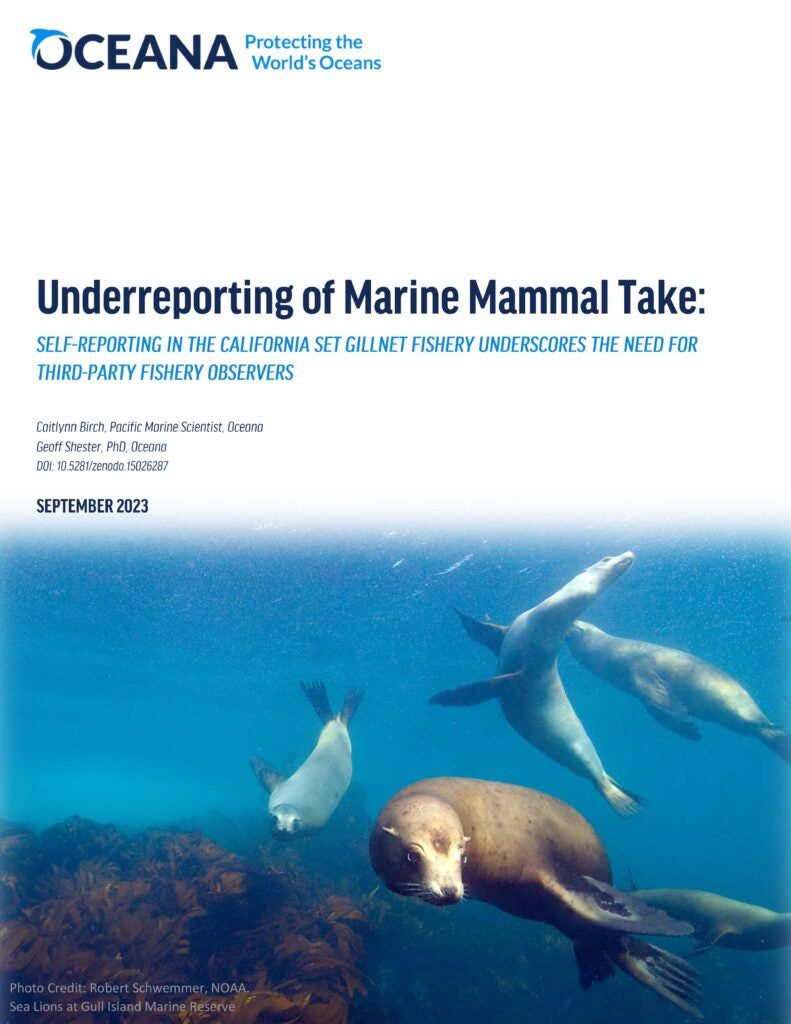Report | October, 2023
Underreporting of Marine Mammal Take: Self-Reporting in the California Set Gillnet Fishery Underscores the Need for Third-Party Fishery Observers
The unintended catch and discarding of marine life is widely considered among the top ecological impacts of fisheries, and can be a major threat to many populations of marine wildlife. Fishery managers are often limited by available data and must rely upon observer data and self-reporting to quantify impacts and adjust management accordingly. In California set gillnets, targeting white seabass and California halibut, fishery observers have been present on a small portion of total fishing effort in 6 of the last 15 years, and observed zero fishing in 8 of those years. In the absence of observer data, managers may rely upon logbook data to fill key information gaps. However, the usefulness of this information is reliant on accurate reporting. To understand the gap between self-reported marine mammal interactions and total marine mammal take in the fishery, Oceana compared self-reported marine mammal takes in the California set gillnet fishery obtained through a Freedom of Information Act request to federal estimates of marine mammal take based on observer data. Our analysis revealed that participants in California’s set gillnet fishery severely underreported how many sea lions and seals were caught and either injured or killed in the fishery over the last 20 years, as required by law. Marine mammal incidents were only reported 6% of the time.
- View the press release here




